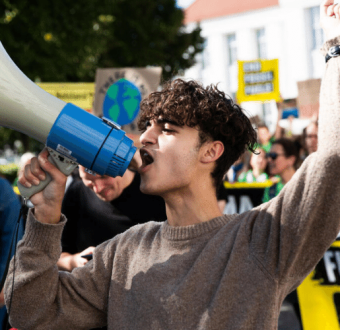The punishment for returning citizens — those who were convicted of felony crimes and served their sentences — does not end after their release from prison. From voting rights to housing and employment access, for many the road to equality becomes much steeper upon their return to society.
That’s not how democracy is supposed to work.
This year, Maryland became the latest state to restore the right to vote for 40,000 returning citizens, effective immediately following their prison sentences. The Maryland Senate overrode a veto from Governor Larry Hogan and ensured that the bill would go into effect in time for this year’s primary. And while the restoration of these rights is a terrific step toward making the returning citizen community whole again, there is still much work to do both in Maryland and across the country.
Organizers in Maryland can tell you that voting rights are a critical piece of restoring justice, but they’re only the beginning. Representatives from the organizations featured in the video above — The Lazarus Rite and Communities United — aren’t satisfied with ending their fight for restorative justice at the right to vote.
The Racist Roots of Voter Disenfranchisement
The disenfranchisement of returning citizens beyond their prison sentences has deep roots in our country. Felony disenfranchisement laws date back to the 1800s, just prior to the passing of the 13th amendment. Today, 6.1 million individuals are denied the right to vote due to a felony conviction. These laws were written to target the African American community — and they have.
Beyond the right to vote, we know it is a challenge for returning citizens to get access to food stamps, housing, employment, and other social services that can help with re-entry. But it’s precisely access to the services and empowerment to participate in our democracy that enable future success. In fact, ex-felons who have had their rights restored are twice as likely to stay out of prison.
Fundamentally, standing for citizens to have a second chance is about humanity. It is about standing next to our neighbors in this fight, not leaving them behind. Reverend Cortly “CD” Witherspoon, president of the Baltimore Southern Christian Leadership Conference, summed it up perfectly in the video:
“We need to make our society, as a whole, a society that is friendly to returning citizens and one that embraces the opportunity to have a second chance.”
So often, the communities stripped of their rights are the same communities on the frontlines of climate change and environmental injustice. They are the communities most prone to flooding, most likely to deal with lead paint, and with power plants built next-door. These communities must have a voice in the political process and our society. We stand in solidarity with that fight.
Christopher Ervin, president of The Lazarus Rite, had good advice for anyone who wants to get involved with this fight: “The average person can be extremely helpful moving people from ex-felon to citizen by becoming advocates in the way that a bodyguard gets a star to the stage. Don’t get the star to the stage and then grab the mic. Let people speak for themselves. The people closest to the problem are closest to the solution.”
It is time to restore humanity to a community that has been treated as second-class citizens for far too long. Let’s give returning citizens the resources needed to succeed.


